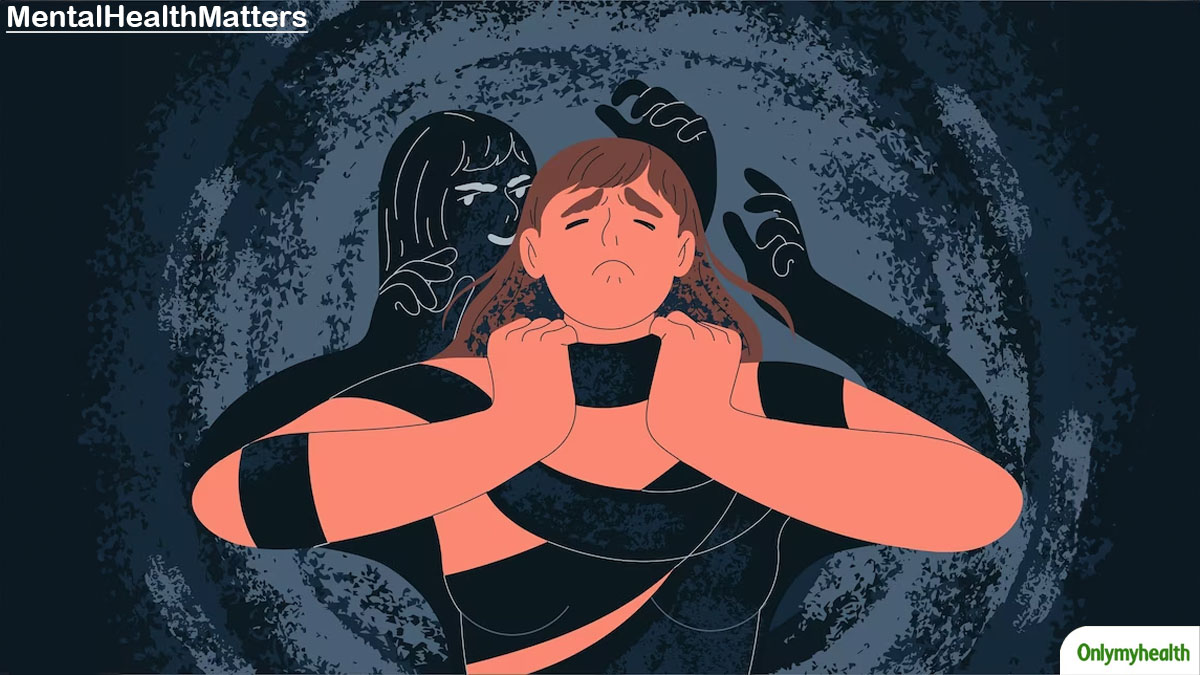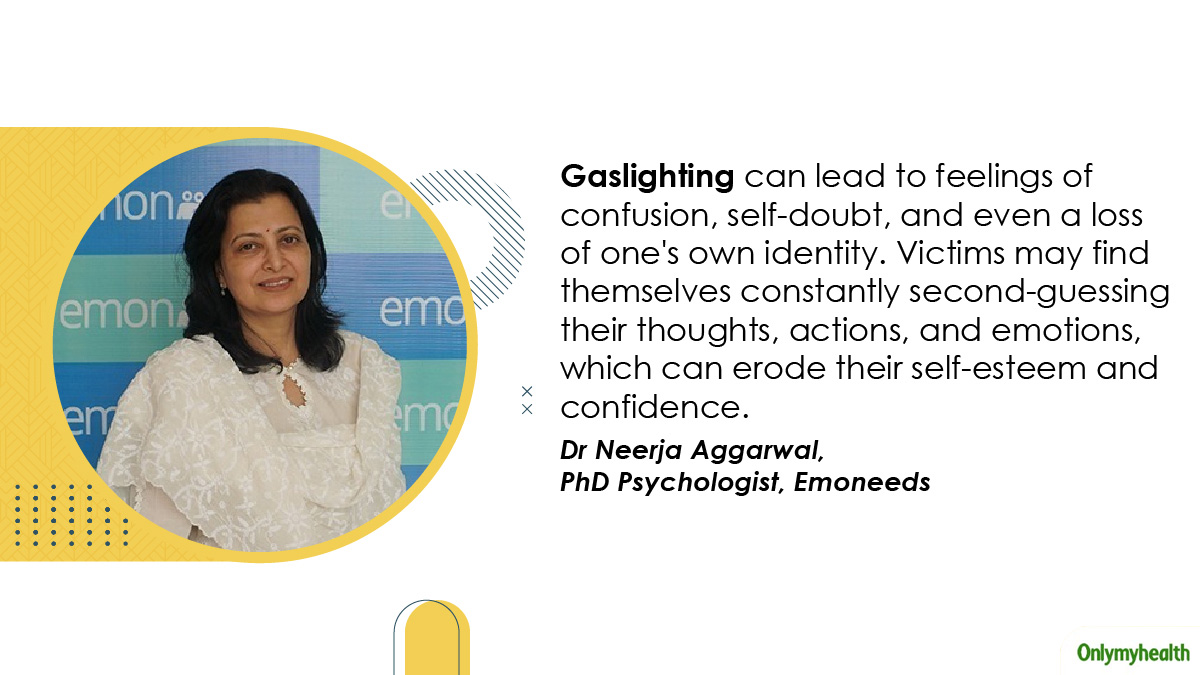

Have you ever recalled a conversation distinctly, only to be told it never occurred? Or shared your emotions, only to face scepticism? These moments might not be mere misunderstandings; they could be signs of gaslighting. Have you questioned your memory or sanity after such encounters? Gaslighting, a term rooted in psychology, isn’t just disagreement; it’s a manipulative tactic with a profound impact on mental health.
This week in our ‘Mental Health Matters’ series, we spoke to our expert Dr Neerja Aggarwal, PhD Psychologist, Emoneeds, who explained gaslighting and its effects on mental health.
What Is Gaslighting

Dr Aggarwal said, “Gaslighting is a manipulative psychological tactic that involves distorting another person’s reality to make them doubt their perceptions, memories, and even sanity.” The term originates from a play and subsequent film called ‘Gas Light’, where a husband attempts to convince his wife that she is losing her mind by manipulating her environment. In modern contexts, gaslighting is a form of emotional abuse that can have severe consequences on an individual’s mental health.
Also Read: Mental Health Matters: Why Do I Overthink So Much?
Recognising Gaslighting Techniques

Gaslighting can take many forms, making it difficult to spot. Some common techniques include:
- Denial of Reality: The gaslighter denies events or situations that have occurred, causing the victim to doubt their memory.
- Withholding Information: The gaslighter withholds information to distort the victim’s understanding of a situation.
- Countering: The gaslighter questions the victim’s perception by introducing contradictory information.
- Trivialising Feelings: This technique involves downplaying the victim’s emotions and making them feel unreasonable for expressing their feelings.
- Projection: The gaslighter projects their negative qualities onto the victim, making the victim feel like they are the one with the problem.
- Shifting Blame: Gaslighters shift blame onto the victim, making them believe they are responsible for the issues at hand.
The Emotional Toll of Gaslighting

Dr Aggarwal highlighted, “The impact of gaslighting on mental well-being is profound and often long-lasting. Individuals who experience gaslighting may initially question their judgement and memory, but over time, the constant manipulation can lead to a range of negative effects. “
She added, “Gaslighting can lead to feelings of confusion, self-doubt, and even a loss of one’s own identity. Victims may find themselves constantly second-guessing their thoughts, actions, and emotions, which can erode their self-esteem and confidence.” The persistent denial of their reality may result in anxiety, depression, and an overwhelming sense of isolation. As victims become more dependent on the gaslighter’s version of reality, they may disconnect from their support systems, further exacerbating the damage to their mental health.
Also Read: Mental Health Matters: Mental Disorders and FAQs Related To Them
Complex Trauma and PTSD

Dr Aggarwal informed, “In some cases, gaslighting can contribute to complex trauma, leading to symptoms similar to Post-Traumatic Stress Disorder (PTSD).” According to Evidence-based Complementary and Alternative Medicine (eCAM ), PTSD is a mental health condition arising from exposure to or observation of traumatic, life-threatening incidents. PTSD involves significant psychobiological connections that can hinder daily functioning and even pose life-threatening risks.
Survivors may experience flashbacks, nightmares, and hypervigilance, all of which contribute to a state of chronic emotional distress. The manipulative tactics employed by gaslighters can create a toxic cycle that leaves victims feeling trapped and powerless.
Recovery and Healing

Recovering from the effects of gaslighting requires a combination of self-awareness, support, and sometimes professional therapy. Dr Aggarwal said, “Breaking free from the cycle of manipulation involves recognising the signs of gaslighting, regaining a sense of self-trust, and rebuilding one’s self-esteem.” Seeking help from mental health professionals who specialise in trauma and abuse can provide survivors with the tools they need to heal and reclaim their mental well-being.
Raising Awareness and Empowerment
Dr Aggarwal concluded, “Addressing gaslighting as a society involves raising awareness about this insidious form of emotional abuse, promoting healthy communication, and encouraging individuals to seek help when they suspect they are being manipulated.” By shedding light on gaslighting and its detrimental effects, we can foster a culture of empathy and empowerment, helping survivors reclaim their mental well-being and sense of self. It’s crucial to create an environment where victims feel safe speaking out and seeking support, ultimately breaking the cycle of gaslighting and promoting mental health for all.
[Disclaimer: This article contains information provided by an expert and is for informational purposes only. We advise you to seek help from a mental health expert if you are dealing with mental health issues.]
اكتشاف المزيد من ينبوع المعرفة
اشترك للحصول على أحدث التدوينات المرسلة إلى بريدك الإلكتروني.
